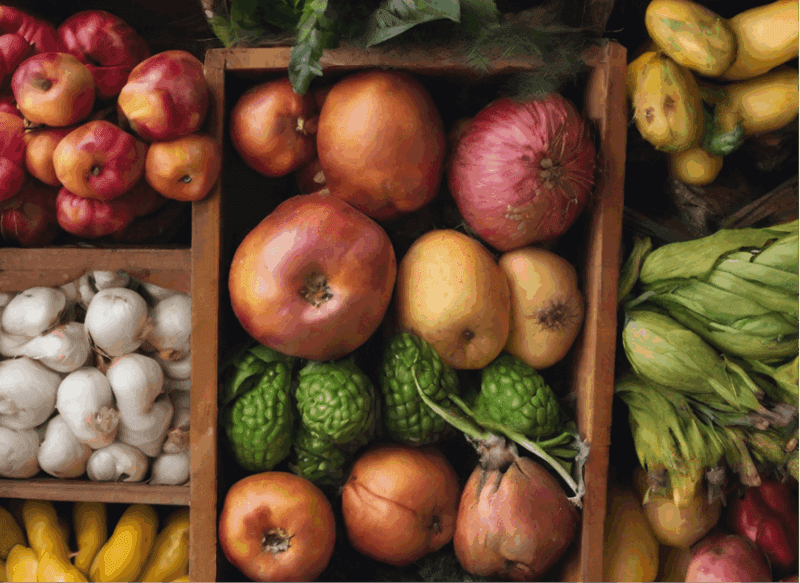As we start September, a period of food harvest, the Cornelius E-Team want to voice the importance of organic produce and how this can have a positive impact on sustainability and carbon footprint.
At Cornelius we advocate for sustainability and we are proud owners of a Soil Association certification that enables us to trade in organic materials.
Cornelius and Organic Ingredients
Organic September is more than just a campaign we support, it’s something we live through our own certified portfolio. As a Soil Association certified business, we are able to trade in organic materials and help our partners bring sustainable, credible products to market.
Here are some of the organic ingredients we proudly distribute:
Nielsen-Massey Fine Vanilla and Flavours
- A variety of standard organic vanilla and organic Madagascan vanilla extracts, powders and specs
Strahl & Pitsch
- Organic Beeswax
- Organic Carnauba Wax
These are ingredients that many people will recognise in their daily lives. From the vanilla in desserts, to the carnauba wax in personal care products, they illustrate how choosing organic goes beyond farming practices, it touches the everyday products we eat, use, and enjoy.
What Do We Mean by Organic September?
Organic September is an annual campaign set up by the Soil Association to promote sustainable and organic farming practices.
The term organic refers to the process of producing products that sustain ecosystems, soils and people. The label is protected in law, meaning products must meet regulations. Organic foods are grown and processed without the use of synthetic fertilizers, pesticides genetically modified organisms and artificial chemicals.
Why Consider an Organic Diet?
There are many benefits that come with adopting an organic lifestyle.
- Better for the environment– Designed to respect nature and to enhance the health of soils, water and air, organic farming is leading the way on sustainability
- Has higher welfare for farm animals– Ensuring all animals reared for meat and animal products have a good life is at the heart of organic farming
- Better for nature and wildlife– Intensive farming practices have caused a decline in wildlife species since the 1970s, particularly at the hands of pesticide use. Organic farming contributes to the preservation of such animals.
- Better for consumers– Organic farming is equally beneficial for our own nourishment and our planets health. Organic methods use fewer pesticides, fewer additives and preservatives, no GM ingredients, reduced use of antibiotics, more resilient farms and nutritionally different food.

How to implement Organic Produce?
Switching to an Organic diet may seem daunting, however there are simple measures that can be taken to reduce your contribution to intensive farming practices, which will improve your wellbeing and reduce your carbon footprint.
5 Easy Steps to Go Organic
- Go through your shopping list- identify what products you would like to switch to organic, any changes are a step in the right direction.
- Plan- investigate where you can find organic fruit, vegetables and grains (e.g supermarket, online, local market).
- Check certifications- make sure the products are marked as organic, buying dried products in bulk helps to reduce costs.
- Commit where you can- organic products can be expensive and difficult to source so just go organic where you can.
- Try growing your own herbs- growing your own herbs will cut back on food miles, plastic packaging and chemicals. Establish which herbs are best suited for your kitchen or garden, buy your seeds then simply plant and harvest. These herbs will taste better and be free of any manufactured chemicals.

Find Out More
If you wish to access more information regarding the organic lifestyle here are a few helpful resources:
Organic September | Soil Association
What is Organic September? Our guide to Organic Living – All-Green
Reduce your Carbon footprint with our step-by-step guide – Giki
Green Living 101: A Beginner’s Guide to an Organic Lifestyle | Organic Voices
How to Live an Organic Lifestyle | Living Organically
At Cornelius, we’re proud to contribute to this movement through our portfolio of certified organic ingredients. Whether it’s vanilla, beeswax, carnauba wax, or almond oil, we continue to support brands that want to make sustainability and transparency part of their everyday products.
You can read more about this topic and how Cornelius contributes through our Health and Nutrition portfolio here .